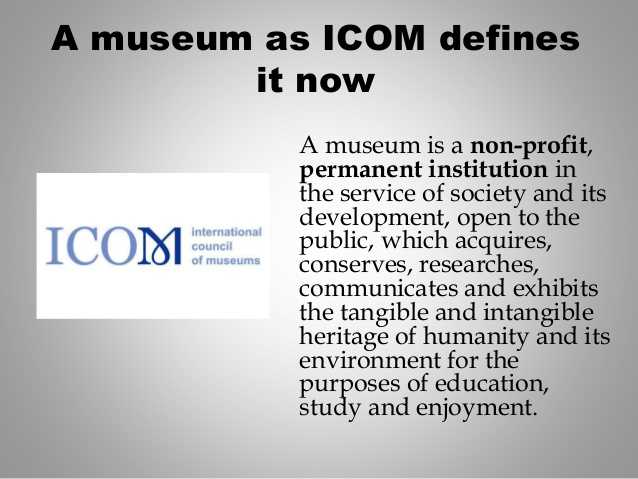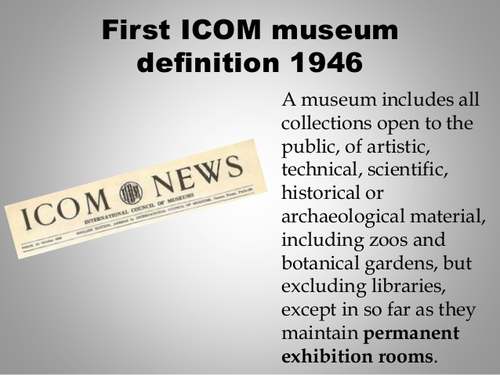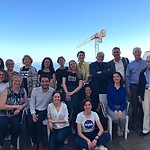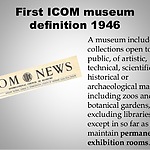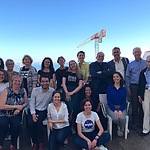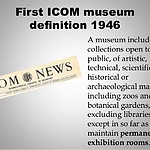It is quite a process to arrive at an internationally accepted museum definition, "the backbone" of the ICOM. Cultural legislation in many countries builds on this international museum definition, so the impact of a new definition is also (legally) globally important. More about the old and new definitions in this report and in the video with Jette Sandahl. Jette chairs the committee. She one of the most inspiring museum colleagues, who had an impressive museum career at the Museum of World Cultures in Gothenburg, Te Papa Museum in New Zealand and the Copenhagen City Museum. During the workshop of CAMOC, the ICOM committee of city museums in Lisbon (3-4 May 2019), she explained how the committee works: radically democratic. During various ICOM meetings there were round tables about the essential elements of a museum. All, more than 40,000, ICOM members can provide input. Anyone can upload a definition in their own language on the website.
There are now 219, with a few days left until the deadline on 20 May. The committee will formulate a new definition based on all this input. Voting will take place during the 25th General Conference (Kyoto, 1-7 September 2019). CAMOC members on the roof of Roman Theatre Museum in Lisbon, may 2019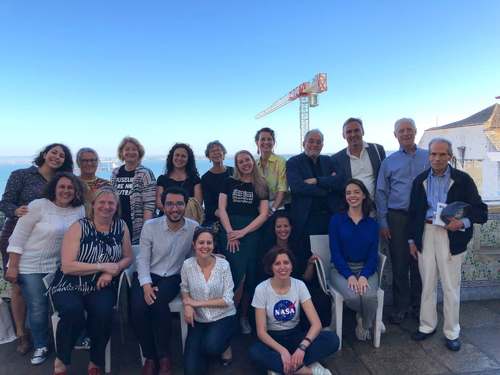
Activist Museums
"Now that I look back, the old definition seems actually rather naive," says Jette Sandahl, "Society is not as homogeneous and harmonious as it appeared in 2007." Many museums have since taken on more activist positions and feel (even) more responsible for the needs of society. There is also a greater awareness that museums are dependent on political decisions and are part of the ever-growing tourist market. Moreover, in recent years much more attention has been paid to the fact that many museums are a legacy of colonialism. Museums are not neutral, a text on my T-shirt, which is always a great success at conferences with museum colleagues. Sandahl notes that while many museums claim to be neutral, they float between the danger of being overly pronounced versus the danger of becoming irrelevant.
A space where objects speak
The definition committee has established a number of parameters: ideally the new definition is about values, purposes, functions, methods and modes and accountabilities. Although most of the entries are incomplete, they provide a lot of inspiration for Jette and her fellow definition-makers, including secretary Afsin Altayli who has made the website with contributions.
Definition #173 from Japan gives a poetic description of the museum: ‘A space where objects are made to speak to human kind who long for story to be told.’ Some other examples: ‘The museum is a walk-in library of our collective memory’, ‘Museums should be a mirror of the real world with comments’. ‘(The museum) treats subjects in a gender-sensitive way’. ‘… its focus is the Silence that resists to be represented’, ‘Guardian, trust holder and communicant of historical, ethnical and artistic memory.’ The proposals come from all over the world, such #175 Azerbaijan: ‘Each museum is the heir and guardian of a small collection of tangible and intangible human civilization which has been developing over the centuries of life on this planet with a variety of trial and errors as well as artistic creativities. Accordingly, the museum is where by recording, restoration, conservation, research and displaying these artefacts in different exhibitions tries to introduce the best of the past as an enlightened way forward for the future generations.’.
Anonymous
In Lisbon we also spoke about a definition for city museums, in addition to the general museum definition, but more about that another time. Inspired by the discussions, I attempted a definition. It will soon, anonymously as all other submissions, appear on the ICOM website and hopefully make a small contribution to this worldwide search for what museums are (striving to be):
A museum is a reliable, polyphonic, critical, transparent, inviting, exciting, attractive and informative institute that collects, preserves, displays, contextualises and critically examines material, immaterial and natural heritage, also in the light of the colonial origin of objects and the fact that histories of many social groups and communities are hidden or underexposed. A museum is a contact zone that stimulates empathy, encounters and curiosity and that encourages visitors to think about their place in the world and in history and their responsibility for the planet.
Dutch version of the blog here

